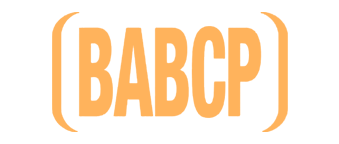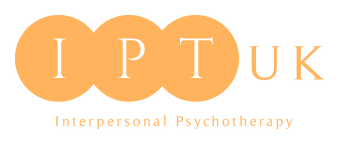What is CBT?
Cognitive Behavioural Therapy or CBT is part of a family of talking therapies, all based on the idea that our thoughts, emotions, actions and feelings are all interconnected. Each of these elements has a direct connection with the other and in effect, changing one has the power to alter all the others positively.
When we are upset, we tend to fall into negative patterns of thinking and responding which can worsen how we feel. At IC Therapies we use CBT to help you recognise and change unhelpful thinking styles or behavioural patterns so that you can feel better and happier.

How CBT Can Help You
CBT helps to improve several different problem areas including facing big life changes like a new baby, a new job and coping with long-term health conditions. CBT is recommended by the National Institute for Health and Clinical excellence (NICE), an independent body that provides evidence-based treatment recommendations to health care professionals and other stakeholders.
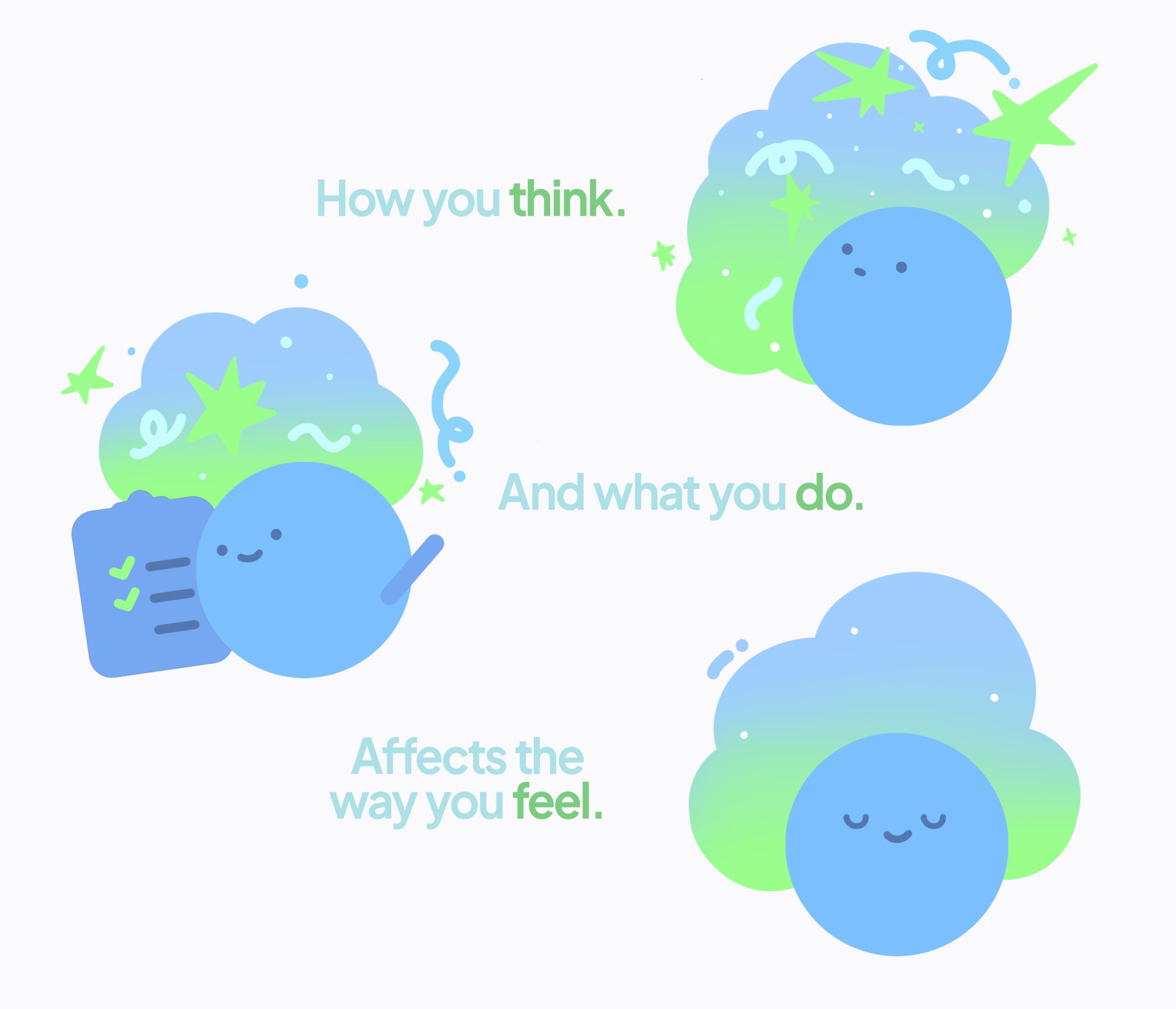
Below is an example of how CBT principles can be used to help a client understand a typical situation.
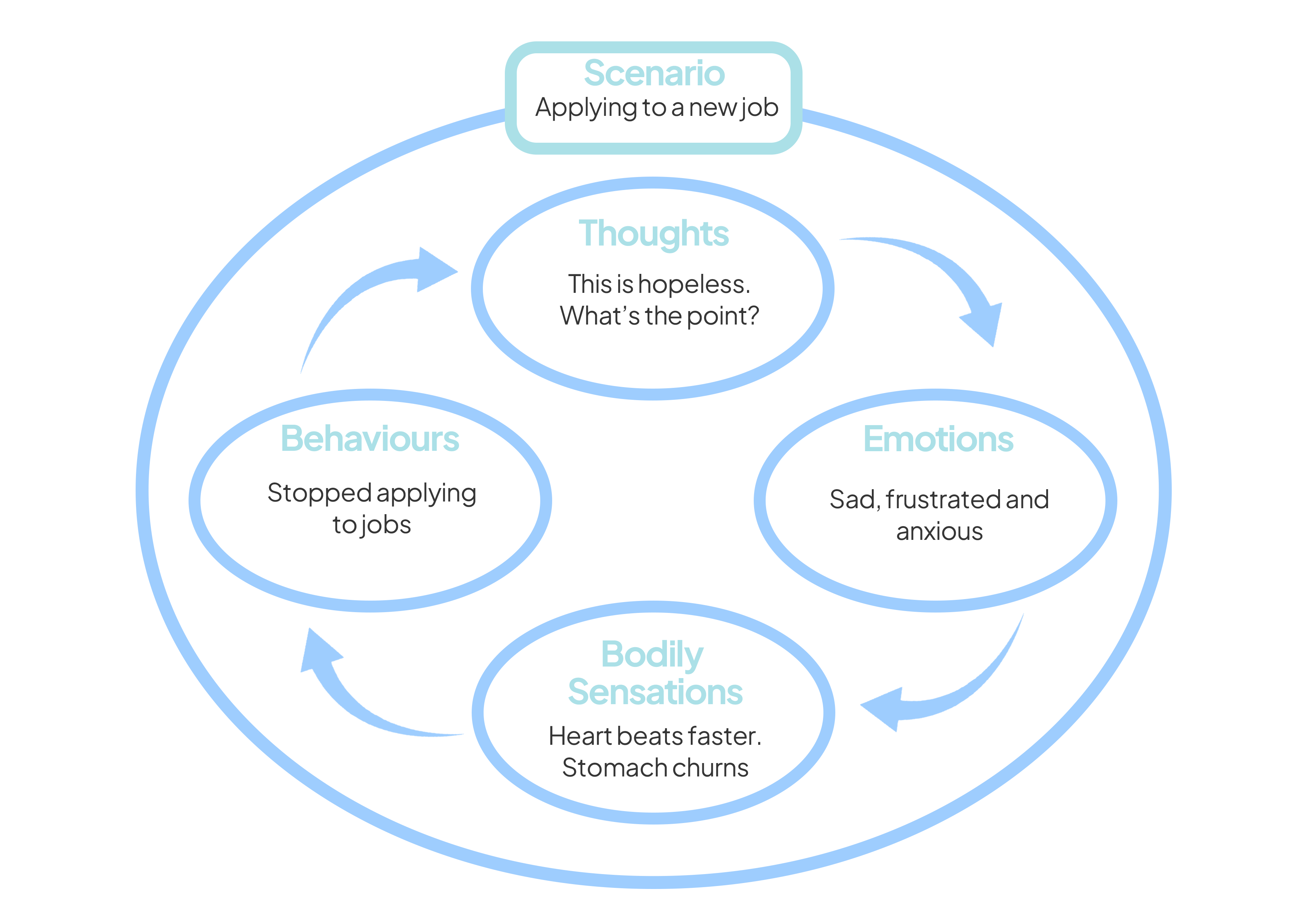
It is common for people who feel depressed or anxious to get stuck in vicious cycles, sometimes the way they try to solve a problem can unintentionally keep the problem going.
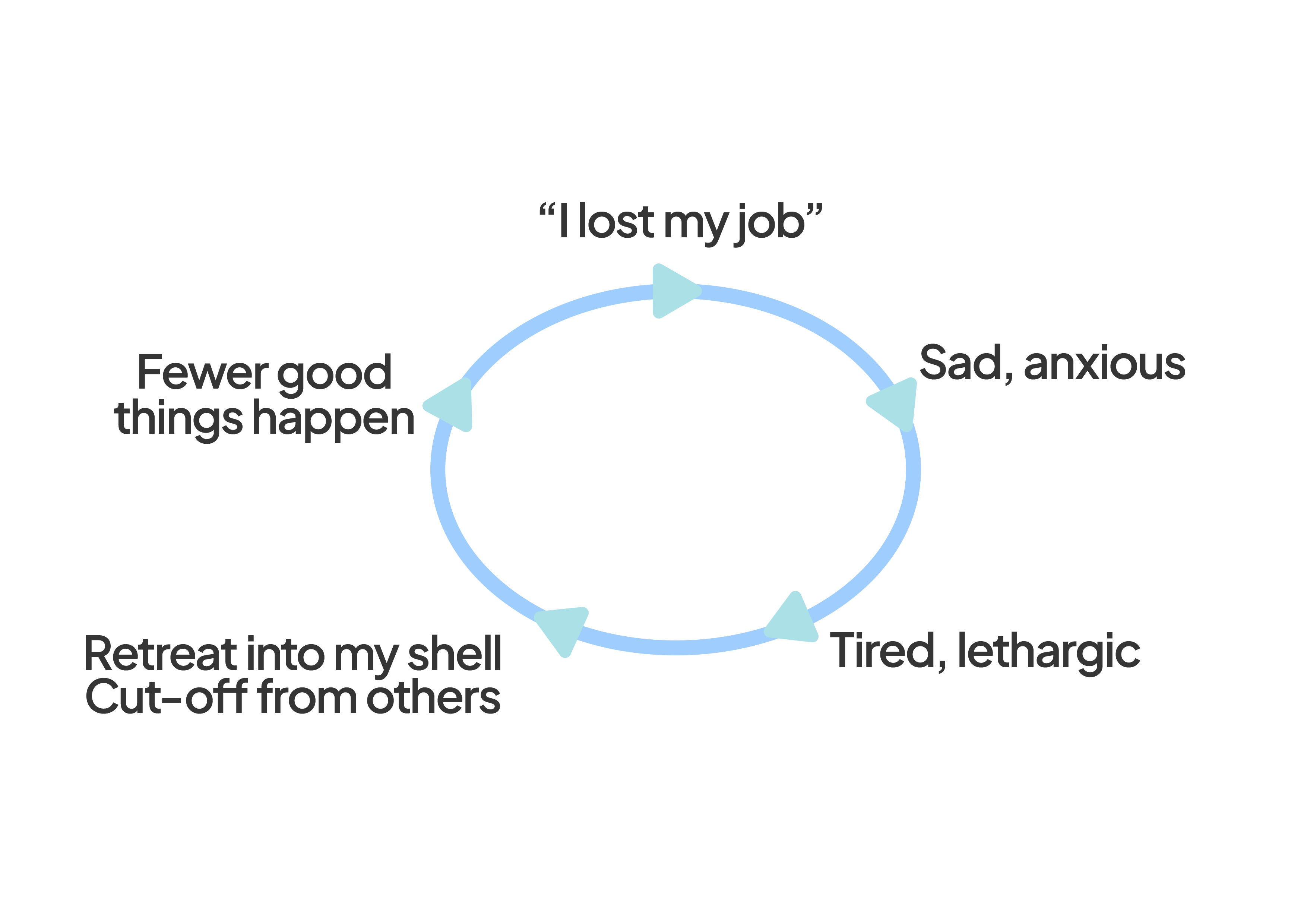
CBT helps us to identify what is keeping us ‘stuck’ so that we can make changes to our thinking and behaviour to help us feel better.
How does CBT work?
Often when people ask, ‘does it work?’ what they mean is ‘can it help me?’. The answer is that CBT is a very effective form of therapy. Research has shown that it is an effective treatment for depression, anxiety, trauma, and many other conditions. Both therapist-guided CBT and self-help CBT have been shown to be effective.
At IC Therapies we inspire to practice the strategies we discuss in the sessions outside the therapy room. Our clients get the most out of therapy by applying the ideas we discussed in the sessions and bringing back any challenges to the next session to be discussed. The in-between session practice is often called “homework” in CBT language. It is also important that you want to change – your motivation, and your willingness to do things that might feel uncomfortable in the short term, are big predictors of how effective it can be.
Here at IC Therapies, we take a collaborative approach in the therapies we offer. We aim at a therapy that feels like a journey of exploration where both the therapist and client have a curious mind instead of one where the therapist is positioned as an expert. One goal of CBT therapy is for the client to become their own therapist. This typically happens when the client feels confident about applying the strategies learned in therapy, independently, to their day-to-day life.
At IC Therapies, we actively engage you in therapy. In the initial stages of therapy, you may notice that your assigned therapist talks more than clinicians who practice other forms of therapy. This doesn’t mean that CBT is all about telling clients what to do and think but it’s because CBT is experimental: Your therapist may take the position of “I don’t know the answer to that, but how might we find out together?”. Your therapist would be actively exploring ways of helping you find out for yourself. Your therapist would often include experiments in the treatment methods. These would be discussed and planned with you, and they can be conducted in and out of the therapy session.
Cognitive behavioural treatments are typically relatively brief, ranging from 6-20 sessions. It is common that most of our clients would start to feel better after 6-10 sessions. The length of therapy would be determined by how fast the therapy works for you. The fastest being 6 sessions and slightly slower pace lasting up to 20 sessions. Your therapist would encourage you to collaboratively review your progress regularly throughout the treatment process. As you consistently make progress with your therapy goals we will discuss and plan when to end treatment. We will always make you part of the decision-making process.
What to expect at your sessions
Each session will last for 50 minutes long and you can choose your preferred mode, either online via secure video conferencing, telephone or face to face.
Before each session, you will be asked to complete some questionnaires. They are an important and helpful way of us monitoring your progress and allowing us to discuss how things are changing for you over time. It can help us to know how to shape the sessions.
In the first session, you will be asked lots of questions aimed at us gaining a shared understanding of the difficulties that you’re brining to therapy. We will start to get an idea about what’s important to you and what you want to achieve.
We’re looking forward to working with you, we will be completely committed to helping you discover new ways of thinking and being that will really help you.
In return, we ask you to be open to new ideas and to be willing to learn some new skills. Therapy is not always easy. Like everything that improves your lives, this process will take time and effort to get you where you want to be. We will agree together “tasks” for you to do in between sessions that relate to what you are going through. These might be something like practicing activities you find difficult or writing down important events or feelings to bring to the next session. This homework is one of the most important things that will help you feel better.
Take a moment to think about your commitment to therapy. What do you want to achieve? What are your goals? If your mind is saying “I don’t have the discipline/motivation/ willpower”, don’t worry – let’s talk about that together. We will be with you every step of the way, and we will go at a pace that works for you.
CBT Case Study
When Mike sought help at 46, it was during a challenging period. The pandemic had led to a job loss, leaving him feeling anxious and depressed about his finances and future. Understandably, he felt overwhelmed, experiencing hopelessness and self-doubt, impacting his relationships and daily activities. At assessment his symptoms were consistent with severe depression.
During our sessions, Mike was supported to understand how the difficulties may have developed and the current processes that combine to keep the depression going. Together, we uncovered how self-criticism and negative thinking patterns fuelled his anxiety and depression. Using a supportive and evidence-based techniques, we started to understand more about Mike’s depression. Psychoeducation for depression was provided and the cognitive model of depression was shared with Mike. We took a gradual step by step approach to exploring negative thinking pattens and formulating behaviour experiments to test out negative thoughts. Mike gradually started to develop alternative more balanced thinking that helped him start to feel better.
Through tailored strategies, we helped Mike gradually rekindle his joy in private leisure activities he once loved. We discussed problem solving strategies to reduce worry about finances. Witnessing his mood improve with each step, he consistently applied the learned techniques. He started to reconnect with friends and family as well as rediscovering leisure pursuits. As he concluded his CBT treatment, Mike expressed feeling positive. He reported improvement in his mood and he had started to look for new job opportunities. He reported feeling more hopeful about the future. At discharge Mike’s anxiety and depression symptoms were within recovery. He completed 16 sessions of CBT.
